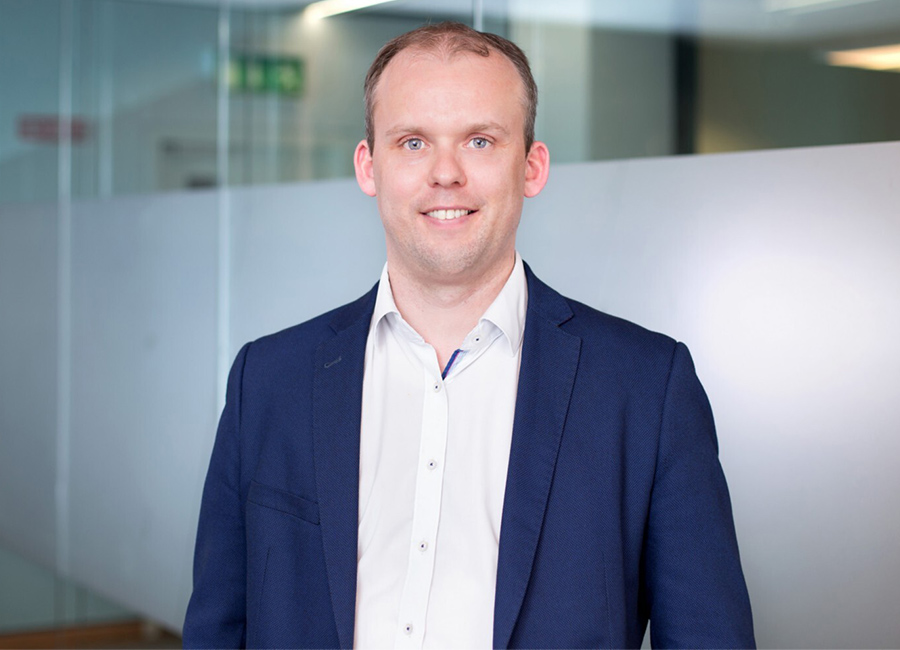Writing in their recent 'Emerging Role of the Chief Data Officer in Ireland' report, EY Ireland head of data analytics Eoin O'Reilly and co-author David W Ryan remarked that "every business is a digital business, they just don’t know it yet".
The phrase might easily be updated in the near future in recognition of the "co-dependency," as O'Reilly puts it, between digital and data that has started to dawn on large businesses.
While Iseq-listed PLCs such as Kerry and Glanbia still trade in physical goods, data is hugely important to all large companies, and firms such as Ryanair and banks like Bank of Ireland and AIB hold significant quantities of customer data.
When GDPR came into effect in the EU five years ago, it was by and large regarded as a compliance issue, and the focus fell on meeting legal obligations.
O'Reilly and Ryan have found in their research that harnessing data is coming to the fore, and especially since Covid, with firms wanting to react quicker to change in future.
O'Reilly says companies, depending on the sector they are in, are transitioning towards becoming more data-centric. Indeed, he agrees that Ryanair's data and technology set-up has handed the budget airline a "huge advantage" over its competitors.
"Almost every organisation we talked to in this report is looking at data, much more than a kind of a functional thing they need to manage and protect," he says. "They're looking at it much more on you know, how could it help us differentiate.”
The process of monetising data is complex, but O'Reilly could see companies exploring the possibilities for generating revenue from data in the future.
"Musgrave, for example, knows a huge amount about what the country is eating or consuming. A company like Glanbia has deep understanding of milk quality across the country. A company like Kerry has huge information about taste preferences," he continues.
"I couldn’t tell you about how they’re monetising these things. Therein in the future may lie some opportunities as they understand so much about a particular supply chain or segment of customers. There are insights that they are able to share and collaborate across industries for staff to unlock new and different things.”
In terms of applications for data, O'Reilly says there are three broad categories: revenue growth through understanding customers better and offering more desired products, but also reducing costs using data to better understand where cost pressures are and where cuts can be made, and risk management.
Evidence EY gathered from telcos and financial services companies suggests that the growth opportunity from data analytics is around 0.5-1% of revenue, while the risk management side is less about preventing cost leakage and more so protecting the organisation's reputation.
While those firms have had chief data officers for the past five to 10 years, and web-based and technology companies have tended to have them since inception due to the fundamentality of data to their operations, the rest of organisations surveyed are thinking about employing a CDO or have a head of analytics outside the C-suite.
O'Reilly characterised "an awful lot" of Irish PLCs as having someone relatively senior in charge of data while stopping short of hiring a Chief Data Officer.
But even if they did and left data to them, they "wouldn't have a great chance at succeeding," according to O'Reilly.
"What you really want the C-suite to understand is to sponsor and engage with the CDO. They don’t need to do his or her job - what they actually need to do is understand the possibilities, and their leadership support is really important," he says.

"They need to engage with the CDO and make sure that the projects the CDO is working on have appropriate funding and support."
O'Reilly believes there will be a tipping point in the next couple of years when senior executives grasp that data is part of their function and their strategy.
At a time when corporations are making efforts to improve their sustainability, the diversity of their workforce and boards, O'Reilly has found that data can often be company's fifth of six most pressing priority.
However, it is often the case that a firm's top four priorities are often "very dependent on data."
"The struggle they must all have is when you articulate data in its own right, people go, 'Yeah, no, I get it, it’s really important, but I have this really important thing over here around the marketing strategy or sustainability strategy,'" he explains.
"But with sustainability you need to articulate carbon footprint, how you’re going to get there, how you’re doing, and that requires a lot of data management."
The skills required of a CDO are often misunderstood. Whereas leaders may think success in the role is purely down to technical competence, it also requires "classic business leadership skills" such as communication and collaboration.
Ultimately, O'Reilly believes that CEOs and CFOs at leading organisations need to open their eyes to the possibilities of data and not to be afraid of uncertainty, as no company has figured it all out.
In the meantime, he recommends that organisations incorporate employees with the right data skillset and make departments like finance and HR aware of how data can assist them.
He estimates that there are some 15,000 open data positions in Ireland currently.
Photo: Eoin O'Reilly. (Pic: EY Ireland)










